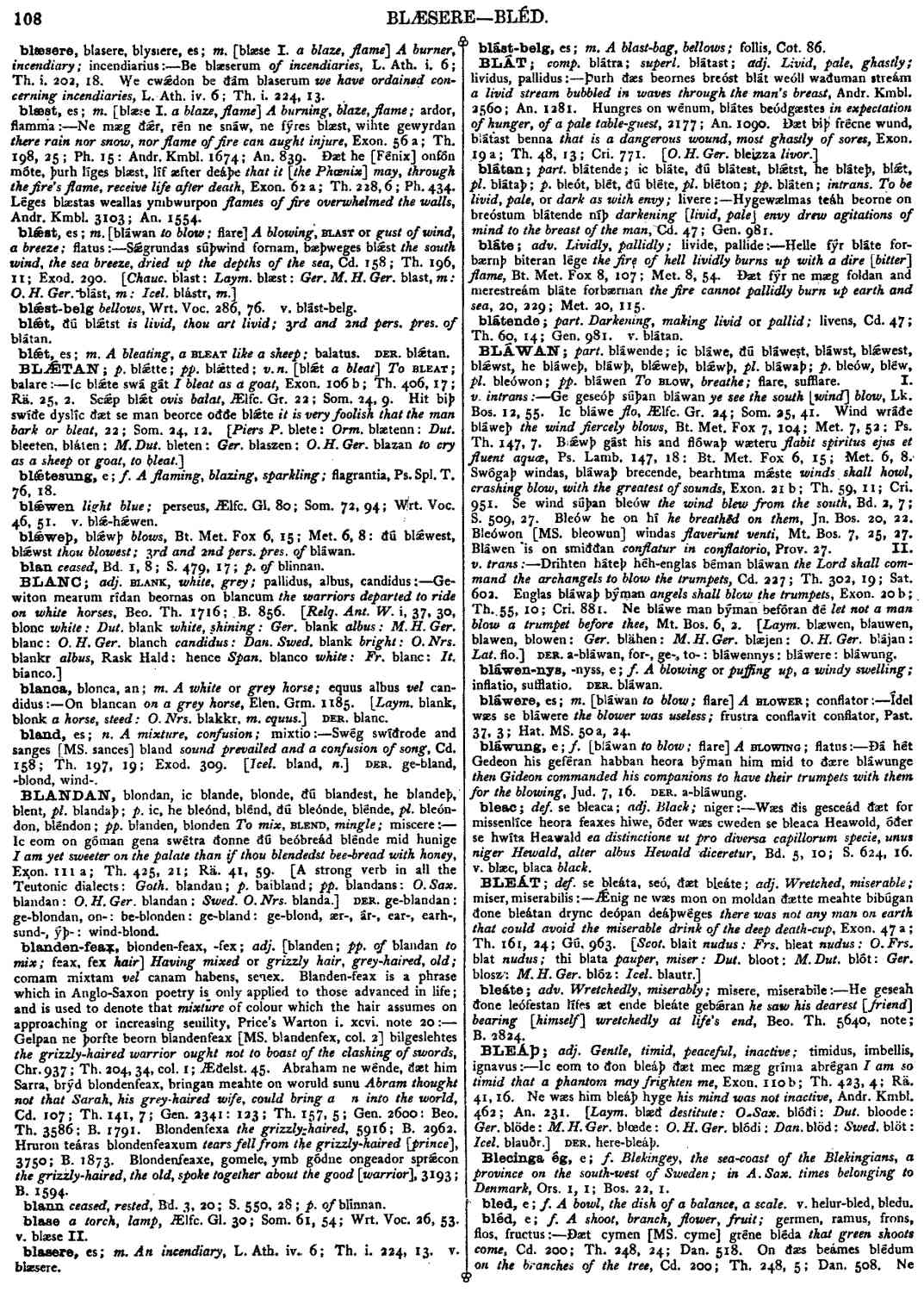BLÁWAN
- verb [ strong ]
-
Ge geseóþ súþan bláwan
ye see the south [wind] blow,
- Lk. Bos. 12, 55.
-
Ic bláwe
flo,
- Ælfc. Gr. 24; Som. 25, 41.
-
Wind wráðe bláweþ
the wind fiercely blows,
- Bt. Met. Fox 7, 104; Met. 7, 52: Ps. Th. 147, 7.
-
Blǽwþ gást his and flówaþ wæteru
flabit spiritus ejus et fluent aquæ,
- Ps. Lamb. 147, 18: Bt. Met. Fox 6, 15; Met. 6, 8.
-
Swógaþ windas, bláwaþ brecende, bearhtma mǽste
winds shall howl, crashing blow, with the greatest of sounds,
- Exon. 21 b; Th. 59, 11; Cri. 951.
-
Se wind súþan bleów
the wind blew from the south,
- Bd. 2, 7; S. 509, 27.
-
Bleów he on hí
he breathed on them,
- Jn. Bos. 20, 22.
-
Bleówon [MS. bleowun] windas
flaverunt venti,
- Mt. Bos. 7, 25, 27.
-
Bláwen is on smiððan
conflatur in conflatorio,
- Prov. 27.
-
Drihten háteþ héh-englas béman bláwan
the Lord shall command the archangels to blow the trumpets,
- Cd. 227; Th. 302, 19; Sat. 602.
-
Englas bláwaþ býman
angels shall blow the trumpets,
- Exon. 20 b; Th. 55, 10; Cri. 881.
-
Ne bláwe man býman befóran ðé
let not a man blow a trumpet before thee,
- Mt. Bos. 6, 2.
Bosworth, Joseph. “BLÁWAN.” In An Anglo-Saxon Dictionary Online, edited by Thomas Northcote Toller, Christ Sean, and Ondřej Tichy. Prague: Faculty of Arts, Charles University, 2014. https://bosworthtoller.com/4620.
Checked: 0